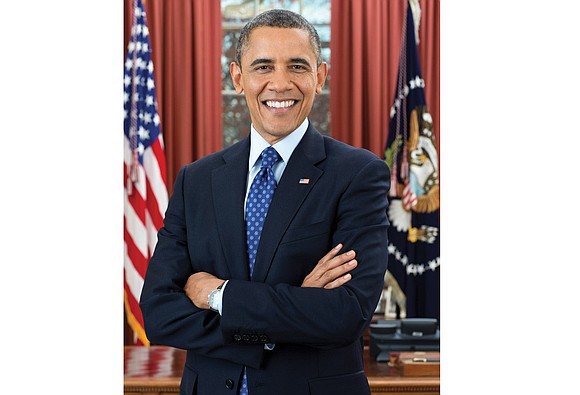President Obama commutes sentences of more than 500 nonviolent federal offenders
1/26/2017, 10:52 p.m.
By Reginald Stuart
Special to the
Richmond Free Press
President Obama used some of his final hours in the White House making good on his promises to help imprisoned nonviolent federal offenders get a second chance. He commuted the sentences of more than 500 federal prisoners.
More than a dozen Virginians, including two from Richmond, were among those covered by one of two commutation packages issued by President Obama last week as he and his White House team were packing their bags after eight years of national leadership.
In the last two commutation and pardon orders issued in his final days in office, President Obama included Virginians from Richmond, Norfolk, Spotsylvania, Amelia, Petersburg and Lynchburg.
The commutations were hailed by Kemba Smith Pradia, a Richmond native and sentencing reform advocate, who expressed some concern about how President Trump will address the federal drug laws, which are viewed as harsh and inequitable in their treatment of nonviolent offenders and are increasingly unpopular.
“I’m grateful President Obama granted so many commutations, but I know people who were denied and they deserved a second chance at life,” said Ms. Pradia, who, in the 1990s as a Hampton University student, pleaded guilty to violating federal drug laws. Her 24½ –year sentence was commuted by former President Clinton after she spent nearly seven years in prison. She was a first-time, nonviolent offender.
She has since graduated from Virginia Union University, is married with two children and lives in Hampton Roads, where she continues her national work on behalf of sentencing reform.
“President Obama was only trying to provide relief for individuals because he knew Congress wasn’t going to pass any legislation that would have corrected the so many wrongs,” said Ms. Pradia. “So the fight continues to try to change legislation.
“But I hope that until then, someone can influence President Trump to continue granting commutations for deserving individuals.”
All told, President Obama issued more than 1,700 commutations over the course of eight years.
The commutations last week did not equate to the former president waving a magic wand freeing those directly affected. None of the commutations were for immediate release. Some range from a few more months to several years in prison before the commutations take effect. Most also have conditions of some kind, such as a felon’s agreement to enroll in various post-prison resettlement programs after release.
Still, prison time was dramatically cut by President Obama for scores of the thousands of men and women incarcerated for nonviolent illegal drug offenses, most of them convictions for possession of illegal drugs with the intent to sell small quantities.
For years, President Obama was among a growing number of political, civic, religious and educational leaders to attack federal mandatory minimum sentences for first time, nonviolent offenders as too harsh. Reform advocates said they hope President Obama’s outgoing gesture will serve as an incentive to his successor.
“This was a very significant use of his clemency powers,” said Mark Mauer, executive director of The Sentencing Project, a Washington-based organization that has worked for 30 years toward a fair and equitable criminal justice system.
President Obama “left a substantial number of people serving very harsh sentences,” said Mr. Mauer, who has followed commutation and pardon actions by presidents for years.
While he was disappointed more was not done, Mr. Mauer said the former president “set the bar high for President Trump to exceed, if not match, his deeds.”
President Trump has made no public comments about addressing the fate of the thousands of federal prison inmates serving harsh sentences for their nonviolent illegal drug crimes.
“I’m just glad he (President Obama) decided to do this — to stand up,” said Debbie Campbell, communications outreach associate for Families Against Mandatory Minimums, the Washington-based citizen’s advocacy group started when the federal mandatory minimum prison laws were enacted by Congress in the late 1980s.







